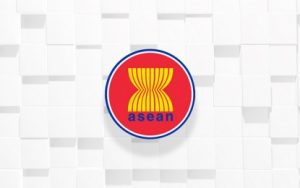MANILA – The Association of Southeast Asian Nations (Asean) has called on all parties to exercise self-restraint in the conduct of activities that would complicate or escalate disputes in the South China Sea.

In a joint communiqué released on Wednesday, Asean said all member states reaffirmed the need to enhance mutual trust and confidence and avoid actions that may further complicate the situation in the area.
“We further reaffirmed the need to pursue peaceful resolution of disputes in accordance with the universally recognized principles of international law, including the 1982 UNCLOS,” it read.
“We emphasized the importance of non-militarization and self-restraint in the conduct of all activities by claimants and all other states, including those mentioned in the 2002 Declaration on the Conduct of Parties in the South China Sea (DOC) that could further complicate the situation and escalate tensions in the South China Sea,” it added.
In addition, they underscored the importance of freedom of navigation in and overflight above the sea lane, recognizing the benefits of having the South China Sea as a sea of peace, stability, and prosperity.
The statement came following an August 2 meeting among the bloc’s top diplomats for the 54th Asean Foreign Ministers’ Meeting (AMM).
During said virtual meet, some member states also raised concerns on the land reclamations and activities in the South China Sea that “have eroded trust and confidence, increased tensions, and may undermine peace, security, and stability in the region”.
China, Taiwan, the Philippines, Malaysia, Brunei, and Vietnam have respective claims in the South China Sea.
For more than a decade, China and the Asean committed to working toward a Code of Conduct on the South China Sea but it was only during the 20th Asean-China Summit in the Philippines in November 2017 that development on the document began to move forward.
Currently, Asean said there is a “continuously improving cooperation” between the two parties, citing the resumption of textual negotiations on the Single Draft COC Negotiating Text (SDNT), which has resulted in a provisional agreement on the Preamble section after delays due to the Covid-19 pandemic.
While it recognized the importance of negotiating through virtual platforms due to the pandemic, Asean said physical meetings would remain the primary modality in COC talks. (PNA)
